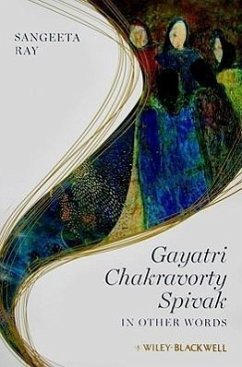Sangeeta Ray, a leading postcolonial feminist critic, provides a significant theoretical and critical engagement with the work of Gayatri Chakravorty Spivak. Spivak was first catapulted to fame as the translator and interpreter of Jacques Derrida's Of Grammatology, and subsequently became instrumental in creating and shaping the field of postcolonial studies. This book outlines and engages with the central tenets of Spivak's thought through a nuanced examination of the main themes of her work, including ethics, literature, feminism, pedagogy, postcoloniality, violence, and war. Ray adheres to the spirit of a Spivakian methodology as she traces and retraces the full development of Spivak's thought from her very early work to her most recent essays.
Hinweis: Dieser Artikel kann nur an eine deutsche Lieferadresse ausgeliefert werden.
Hinweis: Dieser Artikel kann nur an eine deutsche Lieferadresse ausgeliefert werden.
"Overall, In Other Words represents an impressive effort by Ray tolink, compress but also carefully reread a wide swath of Spivak'swork. At times disorienting in its scope like the theorist's ownwork, Ray's book offers a sustained engagement with some ofSpivak's most valuable insights and has me returning to her oeuvrewith fresh eyes." (Postcolonial Text, 2011)








